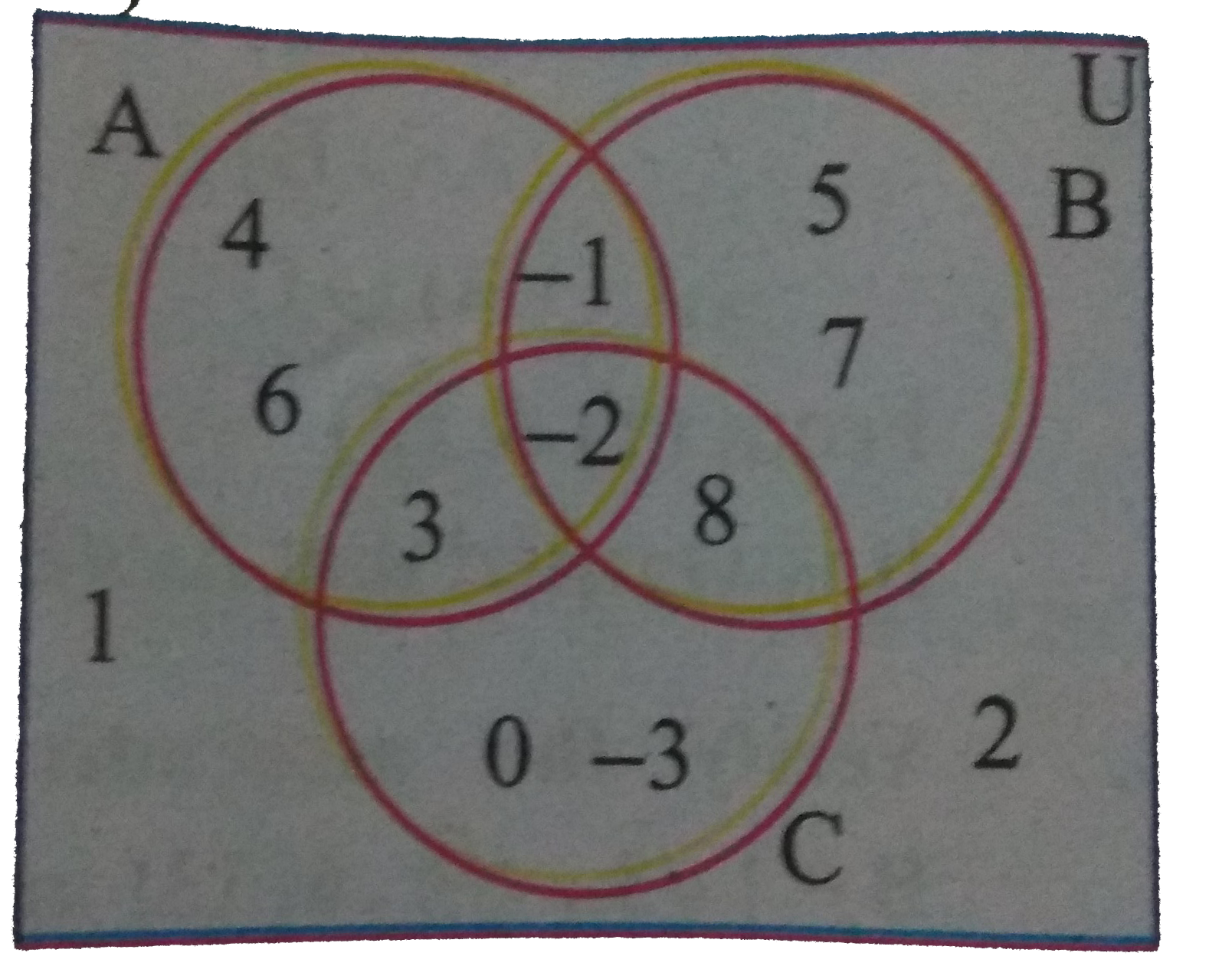If n(A) = 25, n(B) = 40, n(A∪B)=50 and n(B') = 25, find n(A∩B) and n(U).Solution in Tamil
Step by step video & image solution for If n(A) = 25, n(B) = 40, n(AcupB)=50 and n(B') = 25, find n(AcapB) and n(U). by Maths experts to help you in doubts & scoring excellent marks in Class 9 exams.
Topper's Solved these Questions
- BOOK - SURA PUBLICATIONCHAPTER - SET LANGUAGEEXERCISE - EXERCISE 1.726videos
SET LANGUAGE
- BOOK - SURA PUBLICATIONCHAPTER - SET LANGUAGEEXERCISE - TEXT BOOK ACTIVITIES2videos
SET LANGUAGE
- BOOK - SURA PUBLICATIONCHAPTER - SET LANGUAGEEXERCISE - EXERCISE 1.519videos
SET LANGUAGE
- BOOK - SURA PUBLICATIONCHAPTER - REAL NUMBERS EXERCISE - UNIT TEST19videos
REAL NUMBERS
- BOOK - SURA PUBLICATIONCHAPTER - STATISTICSEXERCISE - Section -C2videos
STATISTICS
Similar Questions
Which of the following is correct?
03:43View SolutionDiscuss and give as many examples of collections from your daily life situations, which are sets and which are not sets.
03:14View SolutionUsing the adjacent venn diagram, find the following sets :

(i) A - B
(ii) B - C
(iii) A'∪B'
(iv) A'∩B'
(v) (B∪C)'
(vi) A−(B∪C)
(vii) A−(B∩C)01:19View SolutionWhich one of the following , regarding sum of two irrational number , is true ?
01:08View SolutionCalculate the mean of the following distribution using Assumed Mean Method.
 01:59View Solution
01:59View SolutionIf n(A−B)=25,n(B−A)=15 and (A∪B)=60. Then a(A∩B)=________
01:33View SolutionIf A and B are subsets of the universal set X, where n(X)=50,n(A)=35,n(A∩B)=10andn[(A∪B)]'=3, then the value of n(B),n(A∩B),n(A∪B) are respectively.
03:35View SolutionIf A and B are two disjoint sets and n (A) = 15 and n (B) = 10 find n (A∪B),N(A∩B).
02:47View SolutionIf n(A) = 300, n(A∪B)=500,n(A∩B)=50 and n(B') = 350, find n(B) and n(U).
04:49View SolutionIf n(U)=38,n(A)=16,n(A∩B)=12,n(B')=20,find n(A∪B).
01:56View SolutionIf n(A) = 12, n(B) = 17 and n(A∪B)=21 find n(A∩B).
02:42View SolutionIf A and B are two sets so that n(B−A)=3n(A−B)=9n(A∩B) and if n(A∪B)=26, find n(p(A)).
02:53View Solutionn(p(A)) = 512, n(p(B) = 32, n(A∪B)=16, find n(A∩B):
02:53View Solution(i)If n(A)=25, n(B)=40, n(A∪B)=50andn(B')=25, find n(A∩B)andn(U).
(ii) If n(A)=300,n(A∪B)=500,n(A∩B)=50andn(B')=350, find n(B)andn(U).02:19View SolutionGiven n(A)=7,n(B)=8andn(A∪B)=10 find n[(A∩B)].
02:18View Solution

